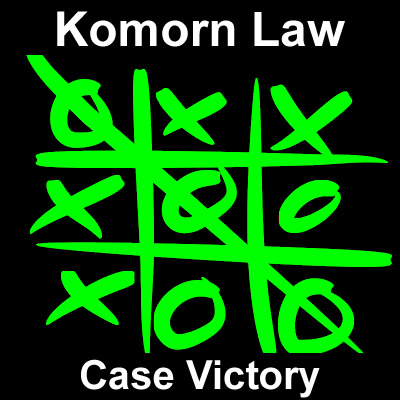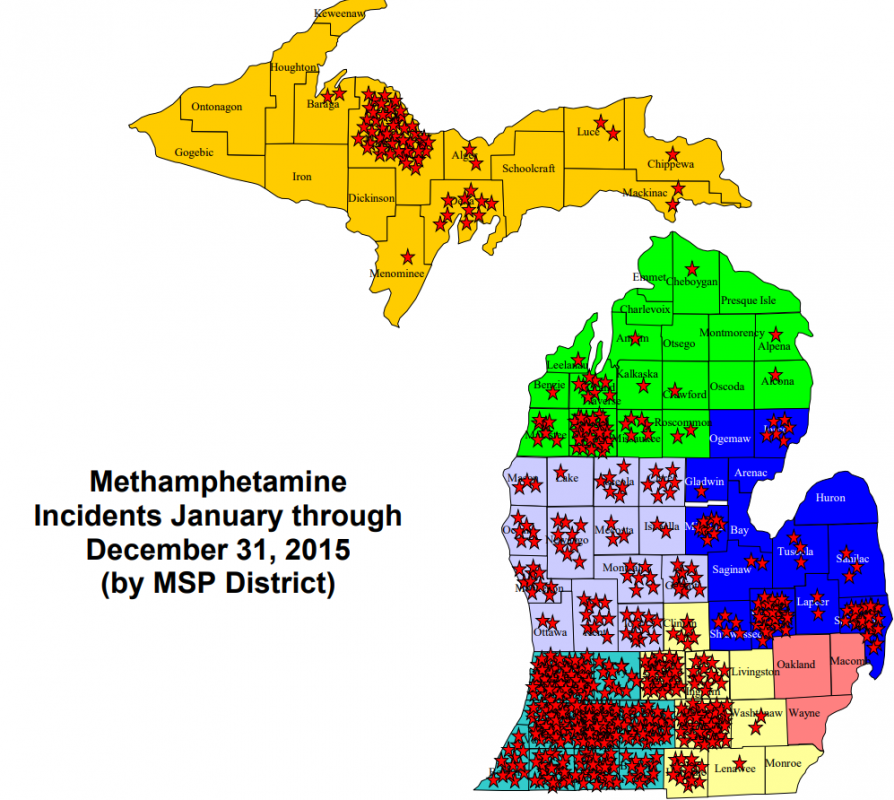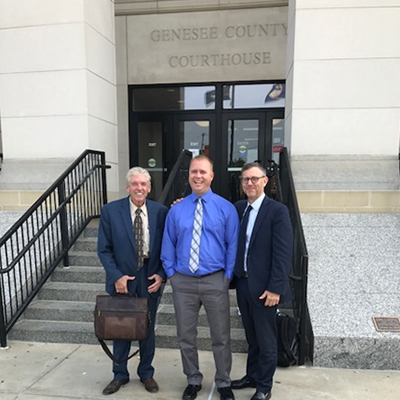Effective February 13, 2024
On February 6, 2024, the Michigan Supreme Court issued ADM File No. 2023-24, which adopts amendments to MCR 3.701 and the addition of MCR 3.715, .716, .717, .718, .719, .720, .721, and .722, effective February 13, 2024.
These changes follow the creation of the Extreme Risk Protection Order Act and amendments to the Firearms Act, the Code of Criminal Procedure, and the Revised Judicature Act in May of 2023.
- MCR 3.715 Definitions. Several terms are defined within this rule, including “complaint,” “existing action,” “minor,” “petitioner,” and “respondent.” In addition, MCR 3.715 indicates that the terms “dating relationship,” “possession or control,” “family member,” “guardian,” “health care provider,” “law enforcement agency,” and “law enforcement officer,” mean those terms as defined in MCL 691.1803.
- MCR 3.716 Commencing an Extreme Risk Protection Action. An extreme risk protection action is an independent action commenced by filing a complaint with the family division of the circuit court. A complaint may be filed regardless of whether the respondent owns or possesses a firearm and must be prepared on a form approved by the State Court Administrative Office and submitted with the complaint. An extreme risk protection action may only be commenced by
- the spouse or former spouse of the respondent;
- an individual who has a child in common with, has or has had a dating relationship with, or resides or has resided in the same household as the respondent;
- a family member;
- a guardian of the respondent;
- a law enforcement officer; or
- a health care provider, under certain circumstances.
MCR 3.716 also details requirements for the complaint, a complaint against a minor, and venue.
- MCR 3.717 Dismissals. Except as otherwise specified in the rules, an action for an extreme risk protection order (ERPO) may only be dismissed upon motion by the petitioner prior to the issuance of an order.
- MCR 3.718 Issuing Extreme Risk Protection Orders. Except as otherwise provided in the rule, the court must rule on a request for an ex parte order within one business day of the filing date of the complaint and must expedite and give priority to ruling on a request for an ex parte order. MCR 3.718 also specifies the factual requirements for granting an ex parte order as well as the procedures for immediate emergency ex parte orders, an anticipatory search warrant, and hearings. The court must expedite and give priority to hearings required by the extreme risk protection act and must schedule a hearing for the issuance of an ERPO under certain circumstances detailed in the rule.
- MCR 3.719 Orders. This rule details the form and scope of an order and stipulates the respondent’s response requirements, along with restrictions on concealed weapons and the process for surrendering firearms. Service, notice, and clerk of the court responsibilities are also covered in MCR 3.719.
- MCR 3.720 Modification, Termination, or Extension of Order. The petitioner may file a motion to modify or terminate the ERPO and request a hearing after the order is issued. The respondent may file one motion to modify or terminate an ERPO during the first six months that the order is in effect and one motion during the second six months that the order is in effect.
- MCR 3.721 Contempt Proceedings for Violation of Extreme Risk. In general, an ERPO is enforceable under MCL 691.1810(4)–(5), 691.1815(4), and 691.1819(4). MCR 3.721 outlines the guidelines for motions to show cause, service, search warrants, arraignment, pleas of guilty, scheduling or postponing hearings, prosecution after arrest, and violation hearings.
- MCR 3.722 Appeals. Appeals must generally comply with subchapter 7.200. Either party has an appeal of right from
- an order granting, denying, or continuing an ERPO after a hearing under MCR 3.718(D); or
- an order granting or denying an extended ERPO after a hearing under MCR 3.720(B).
The respondent has an appeal of right from a judgment of sentence for criminal contempt entered after a contested hearing.
The respondent has the lawful right to appeal a judgment of sentence for criminal contempt entered following a contested hearing.
Chief Justice Clement concurred with the proposed adoption of the ERPO court rules, but she wrote separately to address her concerns regarding inconsistent legal terminology used in the Extreme Risk Protection Order Act..
Among other linguistic inconsistencies, she emphasized that the Act “requires an individual to file “a summons and complaint” to initiate an ERPO action” but the nature of ERPO actions is consistent with that of a petition—not a complaint.
The Michigan Supreme Court has developed a range of SCAO forms aligned with the ERPO, showcasing their commitment to effective legal documentation.:
See the Court’s February 7, 2023 memorandum for more info.
Court Form Information
https://www.courts.michigan.gov/4908b5/siteassets/forms/scao-approved/recent-revisions/eoc_erpo.pdf
Related Articles
Maker of CBD products asks court to decide
The Petitions of the Week column highlights a selection of cert petitions recently filed in the Supreme Court. A list of all petitions we’re watching is available here. Organized crime, from the mafia to small-time money laundering schemes, often evades criminal...
New laws for 2024 – Buckle Up
States nationwide will welcome the upcoming year with the implementation of laws tackling crucial matters such as gun violence, book bans, and the introduction of gender-neutral toy sections. These legislative advancements are set to take effect throughout 2024,...
Biden Issues More Cannabis Pardons but…
Joe Biden has extended pardons for individuals charged with simple cannabis possession and use, yet disappointingly, he has refrained from granting clemency to those currently incarcerated for cannabis-related offenses.In an extension of the previous year's extensive...
Working With and Not Against, IRS Revenue Code 280E
Cannabis operators face IRS Revenue Code 280E restrictions, but smart tax planning and strategies allow entrepreneurs to mitigate its impact on their business.Komorn Law is Michigan's top cannabis law firms when it comes to licensing, consulting and legal defense....
More Posts

The Right to a Jury Trial
When facing criminal charges you have the right to have a trial by jury. The justice system will offer you the right to a jury trial. It's just a matter if you can...

Can Police Lie To You?
Police are allowed to lie to you. One might believe that if you ask an undercover cop if they are a police officer they have to tell you. That’s not true. Police can...

Client testimonies about their experience with the legal system
Komorn Law clients speak about their experience with the legal system Several of Komorn Law client's as well as other individuals have chosen to speak about...

MICHIGAN MEDICAL MARIHUANA ACT – Section 4 Defense
Marijuana Criminal Defense Client with medical marijuana card was charged with marijuana possession. Client was assigned a court appointed lawyer and encouraged to...

Michigan Methamphetamine Defense
Bill Schuette, the current Michigan Attorney General, is waging war against Meth users, dealers and labs. Innocent people get swept up with meth crimes when...
Foster Care Agencies Allegedly Discriminated Against Poor, Medical Marijuana Patients
Two families -- including one mom who alleges Child Protective Services took her suckling baby from her breast -- are suing the state, alleging discrimination because...
MMMA-Profile-Michael-Komorn
Here are some links to articles posted by Attorney Michael Komorn US Government Collecting and Using Citizen Communications NATIONAL TOXICOLOGY PROGRAM...

Komorn Law – Victory in Genesee County
Komorn Law PLLC is proud to report a ruling today from the Genesee County Circuit Court. This case involved my client's property and all kinds of salacious...

Komorn Law AVVO Ratings
KOMORN LAW AVVO - RATINGS Read Client AVVO Reviews

Komorn Law-In the News-Fox17
Komorn Law | In the News | Fox 17 News | Links Medical marijuana battle: Father fights for custody of son OTTAWA COUNTY, Mich. – Medical marijuana is a...













